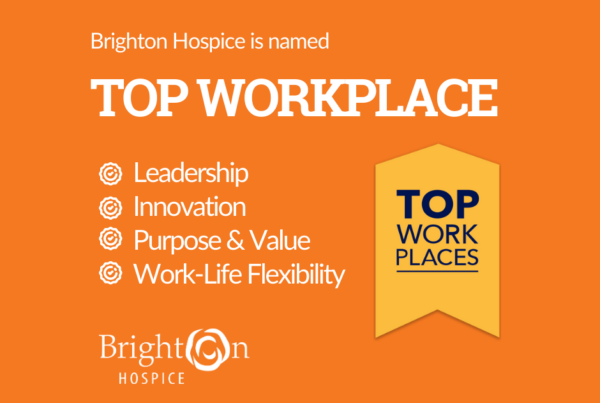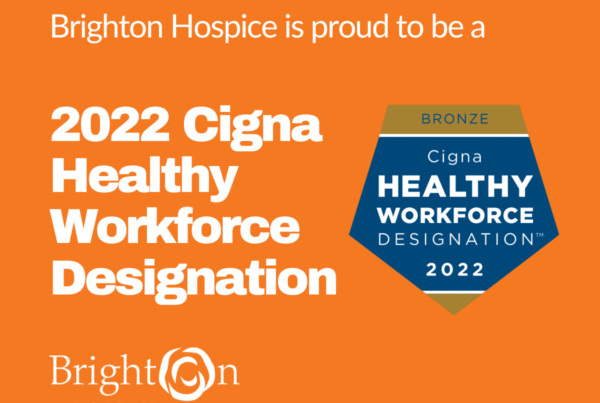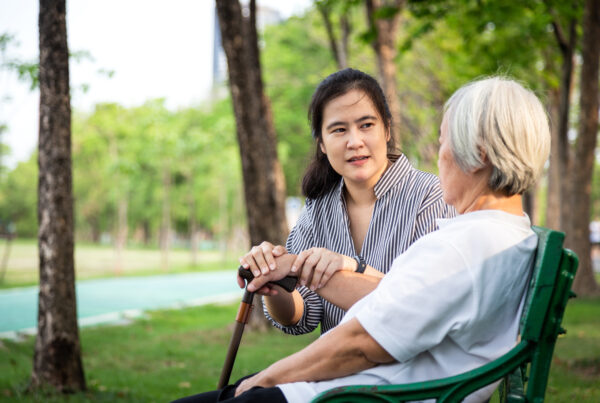
Roles and Responsibilities of Caregivers
There are many roles and responsibilities of caregivers, but we have compiled five that come up often when working with loved ones supporting hospice patients.
- Physically caring for loved ones and/or ensuring their physical needs are met.
- Providing emotional support and companionship.
- Listening to their spiritual needs.
- Finding preferred activities suitable to their skill levels.
- Updating other family/friends about the progression of the disease.
Looking through this list, the word “caregiver” does not encapsulate all caregivers do. Some of these roles reflect additional responsibilities like the roles of nurses, chaplains, social workers, etc. This speaks to the complexity of what it takes to support loved ones receiving hospice care. Many describe caregiving as a full-time job. When going over all that caregivers do, it’s not surprising that many caregivers experience high-stress levels.
It can be common to lose a sense of your identity through this process. We hope to give you some ways to refill your cups and find ways to improve resiliency through such difficult circumstances.
This topic can oftentimes be frustrating to discuss. We often hear friends say, “you need to make time for yourself,” which can feel impossible when we have so many responsibilities on our shoulders. We hope to find sustainable ways to incorporate self-care while taking on such a demanding role.
How Stress and Grief Play a Role
“Although there is more awareness & openness in the general population about issues related to death now than even a decade ago, most people are still uncomfortable talking openly about their wishes at the end of life & most families do not discuss funeral arrangements until the need for such arrangements is imminent.” (Harris 253).
Caregiving has its own challenges and can be stressful enough as is. The fact that there is a future loss involved can raise a lot of uncomfortable feelings. Considering many do not like to think about death or talk about it, being a caregiver can involve navigating many stressful conversations/situations. It is common to wonder if we made the right choices or said the right things. These feelings of guilt and shame can weigh on us even more and carry these heavy feelings with us.
Our culture also plays a role in death being a taboo conversation. Our healthcare system has made significant technological advancements to further push away death’s inevitability. This is not to say that our technological advancements have not done amazing things for our communities! We have learned so many new ways to save lives and improve the well-being of many. However, we have not made equal strides in talking about uncomfortable topics involved with end-of-life care. This burden continues to fall on the caregivers and can even lead to experiencing social isolation. This may look like loved ones dismissing the caregivers out of their role being so taboo or blaming caregivers for mistakes that were out of their control due to their inability to handle these topics.
If you are having trouble navigating these complex situations or making stressful decisions, lean into your hospice care team. They want what is best for the patient and can most likely help keep family and friends in the loop.

Self-Care May Look Different for Caregivers
Caregiving is challenging! Whether it be the long list of roles and responsibilities or navigating challenging conversations, most anyone would feel overwhelmed. Compassion fatigue is common. What is compassion fatigue? The American Institute of Stress defines compassion fatigue as “the emotional residue or strain of exposure to working with those suffering from the consequences of traumatic events.” This means that people can experience trauma from trying to care for loved ones as we identify with their pain and suffering.
Compassion fatigue can make you feel like you have lost a piece of yourself when caregiving; when someone is experiencing compassion fatigue, most jump to suggesting self-care! Don’t get me wrong, self-care is essential, but our society often paints this as a trip to the spa or a bubble bath, but a bubble bath may not change the highly stressful role a caregiver plays.
There’s nothing wrong with taking a bath or booking a trip to get a massage; however, it may be more beneficial to change the way we talk to ourselves. Grief is intertwined with this role, so it is common for caregivers to feel shame, guilt, or blame themselves as their loved one goes through the end-of-life care process. Using more positive language and being compassionate with ourselves can help us recharge and experience higher levels of resiliency.
Second, balance is critical. If you feel burnt out, taking some time off is okay. I know this is not an option for everyone, but if it is for any of you, we highly encourage you to make time for yourselves.
So how do we come back to ourselves during this challenging time? We have compiled a few ways to reset and work on feeling like ourselves again.
Mindful Awareness
Mindful awareness is paying attention to how we are thinking and treating ourselves. This may look like being engaged in an intense or difficult conversation while not consumed by grief or stress. The goal is to become more mindful of our thoughts during stressful moments, noticing if we are cleaning our jaw or scrunching our shoulders. Taking a minute to breathe and relax can also be a great way to practice mindfulness. We hold stress in our bodies, so doing a breathing exercise and centering ourselves can help us to relax and reset.
Reflective Practice
Next, we can look back through a compassionate lens and think about what went well and how things could have gone. Reflective practice is learning how to combine action and learning effectively. It allows you to be more aware and have more understanding. The following skills are an important part of reflective practice:
- Analytical abilities: observing difficult circumstances with an open mind, responding calmly rather than spiraling.
- Self-Awareness: how do our past experiences, beliefs, and perspective influences how we show up in the lives of our loved ones, respond to challenging moments, etc.
- Critical Thinking: what may impact the way family, friends, and members of the care team respond.
- Communication: How do we share our reflections with others; when done correctly, this can be a powerful way to connect with others as well as reduce adverse reactions from others
It is important to remember that we can use this skill to understand better and anticipate how others respond. However, the way they respond is out of our control.
At Brighton, our care team strives to support you through these difficult times and situations. Our goal is to help you process your grief and be there to support you in any way we can. Please get in touch with our bereavement team at brightonbereavementsupport@brightonhospice.com if you are interested in one of our support groups.
Resources
Boerner, K., Gleason, H., & Jopp, D. S. (2017). Burnout after patient death: Challenges for direct care workers. Journal of Pain and Symptom Management, 54(3), 317–325. https://doi.org/10.1016/j.jpainsymman.2017.06.006
Granek, L. (2012, May 25). When doctors grieve. The New York Times. Retrieved January 16, 2023, from https://www.nytimes.com/2012/05/27/opinion/sunday/when-doctors-grieve.html
Remen, R. N. (1996). Kitchen table wisdom: Stories that heal. Riverhead Books.
Harris, D. and Bordere, T. (Eds.). (2016). Handbook of Social Justice in Loss and Grief: Exploring Diversity, Equity, and Inclusion. Routledge




